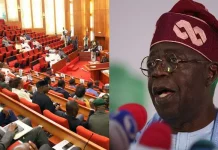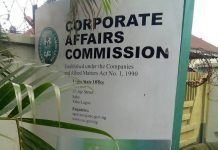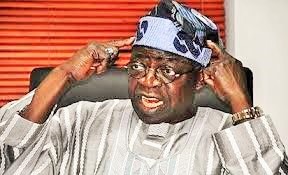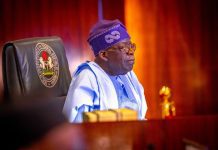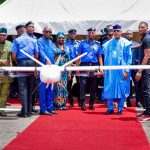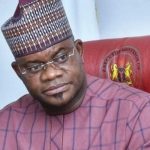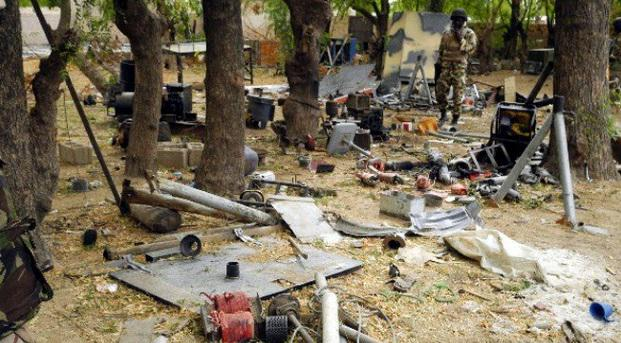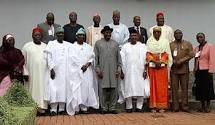

EXECUTIVE SUMMARY
The President of the Federal Republic of Nigeria Dr, Goodluck Ebele Jonathan, GCFR, during his Independence Day broadcast on October 1,2013 informed Nigerians that he had set up a 13-Member Presidential Advisory Committee on National Dialogue under Senator Dr. Femi Okurounmu. The Committee which was inaugurated on 7th October 2013 was mandated to advise Government on the framework of a national dialogue by consulting widely with Nigerians. It was asked to come up with an appropriate name/nomenclature for the proposed national dialogue. The Committee was given seven (7) terms of reference and was asked to submit its report in six (6) weeks.
In compliance with the Presidential directive for members of the Committee to consult widely, the Committee held interactive sessions with Nigerians in 13 major cities across the country-two in each Geo-Political Zone and the Federal Capital, Abuja. It also interacted with the Governors and traditional rulers of the 12 states visited as well as with the Honourable Minister of FCT. A total of 6,650 Nigerians participated in the interactive sessions, 421 presentations were made and 607 memoranda received at the interactive sessions, while 57 memoranda / were received online and 47 by direct submission to the Secretariat.
The Committee recommends that the proposed national dialogue should be called ‘The National Conference’. In response to the terms of” reference number one (ToR1), The Committee recommends with regards to the agenda that the National Conference shall have no, no-go-area but specifically recommended a 38-item agenda, which is by no means exhaustive.
With regards to ToR2, the Committee recommends the setting up of a 13-member Conference Management Secretariat under an Executive Secretary with 2 members from each Geo-Political Zone. The Secretariat shall run the affairs of the National Conference and supervise the elections to the Conference using the INEC Register. It shall also manage all activities and processes of the Conference at all levels, The Committee also recommends that majority of the Delegates to the Conference shall be elected directly on the principles of universal adult suffrage. The size and structure of the National Conference should be in accordance with the 360 constituencies of the House of Representatives although Government may consider the option of using the constituencies of the Senate but each Senatorial District shall send 4 elected Delegates to the Conference. In addition, every State Government shall nominate one (1) Delegate and the President through the Minister of the Federal Capital Territory shall nominate one (1) Delegate for the Federal Capital Territory Abuja. In the event that any State fails to nominate a Delegate, the President shall nominate a Delegate for the said State. The National Conference shall also have a Chairperson and a Deputy Chairperson who should be persons of high unimpeachable integrity. ..
In response to ToR3, the Committee recommends that the President should nominate representatives from among the key interest groups in active consultation with them. In this context the interest groups themselves should nominate to the President their representatives to the National Conference. The Committee however, recommends that the total number of nominated Delegates should not exceed one-third of the total number of Delegates.
As for ToR4, the Committee recommends that, the National Conference should hold for a period of not less than three (3) months and not more than six (6) months. Government may consider convening the National / Conference in the year 2014 possibly between the months of February/ and July, thus concluding the exercise before the onset of the 2013 electioneering campaigns. ‘
With regards to ToR5, the Executive and the National Assembly should cooperate as partners to put in place an enabling law that should lead to a successful and hitch-free National Dialogue. In that context the Committee recommends that the President should send an Executive Bill for the purpose of the National Conference to the National Assembly, which shall enact it into the enabling law. The Committee is convinced that, on balance of probability, it is safer to have such an enabling law, than to assume it is not needed. In the alternative to the above, the President may exercise his inherent powers under Section 5 of the Constitution of the Federal Republic of Nigeria (1999 as Amended), to convene the Conference.
With regards to ToR6, the Committee recommends that the National Conference itself should be saddled with the responsibility of setting out the said legal procedures and options for integrating the decisions and outcomes of the National Conference into the Constitution and Laws of the nation.
In response to ToR7, the Committee made some recommendations contained in Chapter Ten of this Report.
CHAPTER ONE – INTRODUCTION
1.1 The President of the Federal Republic of Nigeria, Dr Goodluck Ebele Jonathan, GCFR, during his Independence Day broadcast on October 1, 2013 informed Nigerians that he had set up a Presidential Advisory Committee on National Dialogue with the following composition: ;
1 .Senator Dr. Femi Okurounmu – Chairman
2.Dr. Akilu Sani Indabawa – Member/Secretary
3. Senator Khairat Abdulrazaq-Gwadabe – Member
4. Senator Timothy Adudu – Member
5. Professor Olufunke Adeboye – Member
6. Professor George A. Obiozor – Member
7. Professor Ben Nwabueze, SAN, NNOM – Member
8. Dr. Abubakar Siddique Mohammed – Member
9. Malam Bukhari Bello, MFR, mni – Member
10.Mr. Tony I. Uranta – Member
I I. Col. Tony Nyiam (Rtd) – Member
12. Alhaji Dauda Birmah, OFR – Member
- Dr. Mrs. Mairo Ahmed Amshi, FRM2, MFR – Member


